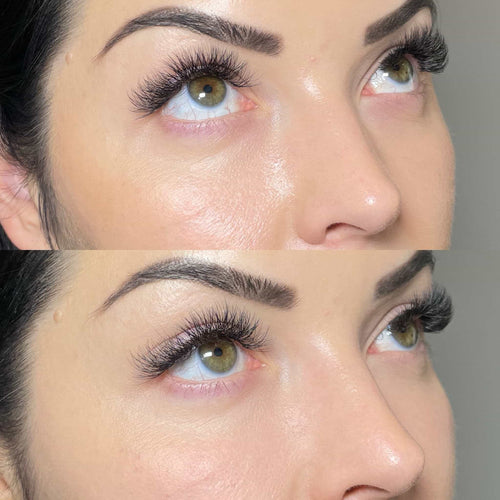Get Started with Dermal Fillers – Book with Dr. Laura Geige
The Science of Hydration and Fillers

Water’s Role in Skin Health
Hydration is fundamental to overall health, and skin health is no exception. Water plays a crucial role in maintaining the skin’s elasticity, plumpness, and overall appearance.
Skin cells need water to function properly.
Water helps to transport nutrients to the skin cells and remove waste products.
This process contributes to healthy cell turnover and renewal, giving the skin a fresh and radiant glow.
Dehydrated skin can appear dull, dry, and fine lines may become more prominent.
Adequate hydration helps to plump up the skin, reducing the appearance of wrinkles and promoting a smoother complexion.
While drinking water is essential for overall skin health, it doesn’t directly influence the longevity or efficacy of dermal fillers.
Fillers, such as hyaluronic acid, work by adding volume to specific areas of the face, smoothing out wrinkles, and enhancing facial contours.
These results are primarily achieved through the filler substance itself, not by changes in skin hydration levels.
- Filler Material: Fillers like hyaluronic acid act as a scaffold, attracting and retaining water molecules. This contributes to their volumizing effect, but this water is localized to the area where the filler is injected.
- Individual Results Vary: Skin’s natural hydration levels can affect how fillers are absorbed and distributed. Some individuals may see slightly enhanced results with good hydration, but it won’t drastically change the filler’s outcome.
In summary, while maintaining adequate hydration is crucial for overall skin health, it does not directly impact the effectiveness or longevity of dermal fillers.
Drinking water contributes to a healthy complexion and helps your skin look its best, but it won’t significantly alter the results you achieve from filler injections.
Dermal Filler Function
Hydration plays a vital role in skin health and can influence how dermal fillers perform. While water alone cannot significantly change the results of fillers, maintaining proper hydration contributes to overall skin elasticity, plumpness, and the effectiveness of the filler injections.
Dermal fillers are gel-like substances injected into the skin to add volume, smooth wrinkles, and enhance facial features. They primarily consist of hyaluronic acid (HA), a natural substance found in the body that attracts and retains water.
When HA is injected, it acts as a scaffold, drawing water into the surrounding tissues and plumping up the area. This creates the desired lifting and smoothing effect.
While fillers provide an immediate volumizing effect, their longevity depends on several factors, including the individual’s metabolism, lifestyle, and skin health.
Drinking adequate water supports collagen production, which is essential for maintaining skin structure and elasticity. Well-hydrated skin can better retain the injected HA, potentially extending the filler’s lifespan.
In addition to hydration, other factors like sun protection, a healthy diet, and avoiding smoking contribute to optimal filler results.
However, it’s crucial to remember that water alone cannot undo the effects of aging or replace the need for professional dermal filler injections.
If you are considering fillers, consult with a qualified medical professional who can assess your individual needs and goals.
Hydration’s Potential Impact on Filler Longevity and Appearance
Studies on Water Intake and Dermal Filler Effectiveness
Hydration plays a crucial role in skin health and can potentially impact the longevity and appearance of dermal fillers.
Dermal fillers are primarily composed of hyaluronic acid (HA), a substance naturally found in the body that attracts and retains water. Adequate hydration ensures that these fillers remain plump and effective by maximizing their capacity to hold moisture.
When the skin is well-hydrated, it appears smoother, plumper, and more youthful. This can enhance the overall aesthetic results of dermal fillers by minimizing the appearance of fine lines and wrinkles.
Studies on the relationship between water intake and dermal filler effectiveness are limited but suggest a potential correlation. Some research indicates that maintaining adequate hydration may help prolong the duration of filler results by supporting optimal HA retention within the skin.
However, it’s important to note that water alone cannot guarantee longevity or effectiveness.
Consult Dr. Laura Geige for Dermal Fillers at It’s Me and You Clinic
Factors such as filler type, injection technique, individual skin characteristics, and lifestyle habits also play significant roles.
While there is no conclusive evidence that drinking a specific amount of water directly improves filler results, prioritizing hydration is generally recommended for overall skin health.
A well-hydrated complexion can contribute to a more radiant and youthful appearance, complementing the benefits of dermal fillers.
Arrange a Consultation for Dermal Fillers with Dr. Laura Geige Today
Tips for Optimizing Results
While hyaluronic acid fillers are renowned for their ability to plump and contour facial features, several factors influence their longevity and appearance, with hydration playing a crucial role.
Hyaluronic acid, the primary ingredient in most dermal fillers, is a naturally occurring substance that binds and retains water molecules. When injected into the skin, it attracts moisture, creating volume and smoothing wrinkles. However, maintaining adequate hydration levels beyond initial injection is essential for optimal filler performance.
Dehydration can lead to thinner-appearing skin, making the effects of fillers less noticeable over time. As skin cells lose moisture, they shrink, causing the injected filler to appear more compressed and less defined.
Conversely, well-hydrated skin allows fillers to distribute evenly and effectively, enhancing their plumping and smoothing capabilities. Hydration can also help improve the overall appearance of the treated area by promoting a healthy, youthful glow.
Here are some tips for optimizing filler results through hydration:
1. **Drink plenty of water:** Aim for at least 8 glasses of water per day to maintain optimal skin hydration.
2. **Consume water-rich foods:** Include fruits and vegetables with high water content in your diet, such as watermelon, cucumber, spinach, and berries.
3. **Use a humidifier:** Dry air can dehydrate the skin. Consider using a humidifier, especially during winter months or in dry climates.
4. **Apply hydrating skincare products:** Use moisturizers and serums that contain hyaluronic acid and other humectants to attract and retain moisture in the skin.
5. **Avoid excessive alcohol consumption:** Alcohol is a diuretic, which means it can lead to dehydration.
While hydration is an important factor, it’s not solely responsible for filler longevity. Other factors such as individual metabolism, lifestyle choices, sun exposure, and the type of filler used also play a role.
Create Cocktails at Home Fashionably Balanced Crimson Hill
- Lip Flip Treatment Near Tatsfield, Surrey - May 8, 2025
- Emotional Breadcrumbing: How To Recognize And Respond To It - May 8, 2025
- Dermal Fillers Near Long Ditton, Surrey - May 6, 2025
